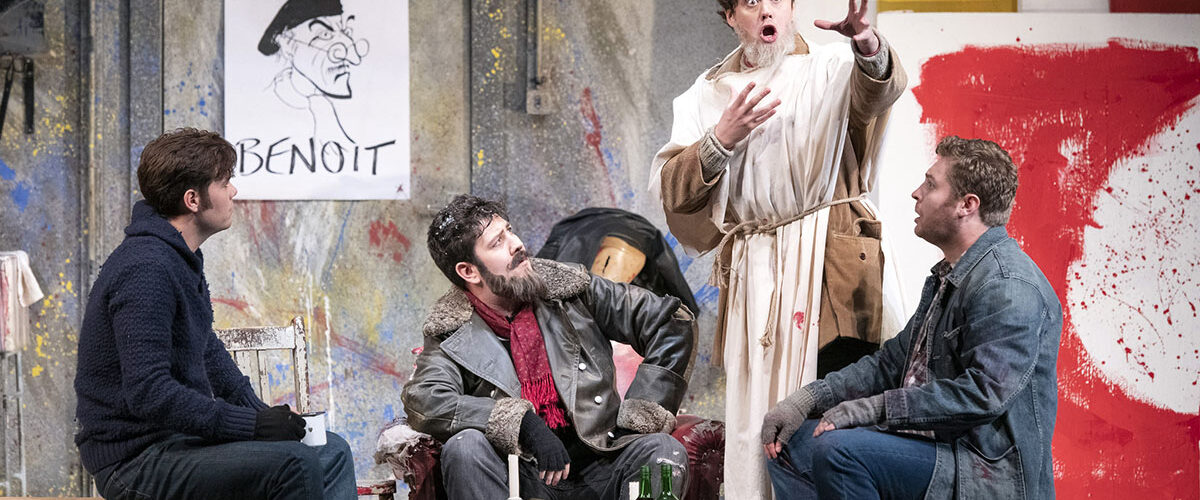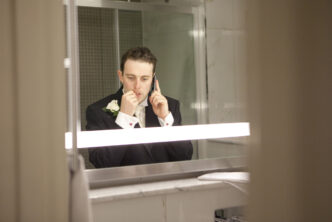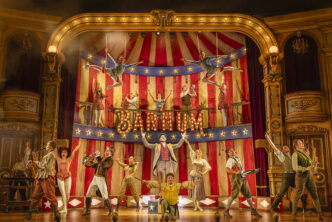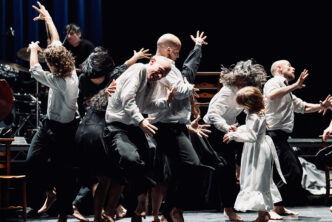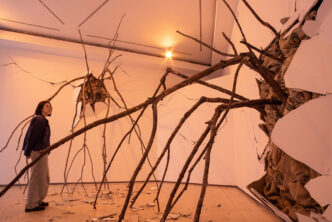Just before the curtain goes up on this latest revival of Phyllida Lloyd’s 1993 production of Puccini’s La Bohème, Howard steps forward to remind us what a marvellous gift to the region Opera North is – providing employment for over 130 talented singers and musicians (not to mention the many skilled practitioners working behind the scenes) and giving us such consistently high quality entertainment. Add to this their excellent and important work in the community, and there is no denying how fortunate we are to have them.
Howard is preaching (largely) to the converted (though he makes special reference to an unusually high number of opera newbies attending tonight’s show).
One Christmas Eve in 1950’s Paris, and four artsy young men (a poet, a painter, a musician and a philosopher) are shivering in their garret. Rodolfo, the poet, nobly consigns the script of his five act play to the stove to provide some warmth – all too little, all too brief.
Happily, the musician, Schaunard, fresh from an unusual assignment (playing for the pet parrot of an eccentric Englishman), comes home loaded with wine, bread and a little cash. The four friends resolve to “drink in, but eat out”. It is Christmas Eve and there are young women waiting to be charmed.
Rodolfo needs to finish an article he’s working on, but promises to join the other three later.
There’s a power outage. Rodolfo lights a candle then goes to answer a knock at the door. It’s Mimi, their neighbour. Her candle has gone out, so she’s come to ask for a light. Rodolfo invites her in and, within minutes, love blossoms.
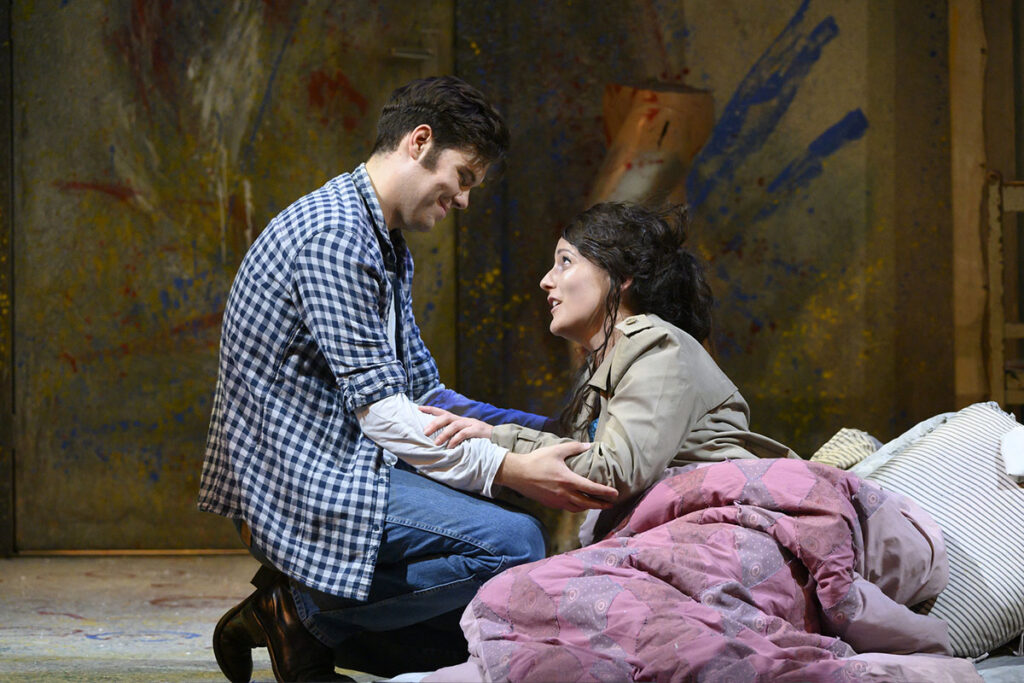
For a contemporary viewer, it can be hard to take this sudden amour seriously, and in this revival, director James Hurley chooses to load it up with ham and cheese. I can see the temptation, but the three musical highlights (packed very tightly into the end of act one) are trying to tell us otherwise. Rodolfo doesn’t schmooze Mimi, he tries to help her see the wonders of the difficult path he has chosen (“Che gelida manina…”).
When she responds by singing her own autobiography, (“Si. Mi chiamano Mimi…”) she reveals a poetic soul beneath the beautiful exterior – a young woman touched by the delights of the changing seasons. In this version, Richard Moore’s lighting hampers rather than highlights the impact of Mimi’s words on Rodolfo. I know it’s meant to be candlelight, but we need to be moved by the emotional journey Rodolfo is embarking on, as well as by Mimi’s beautiful aria.
It’s traditional to close the love duet (“O, suave fanciulla…”) off stage, but here the two young lovers stay in full view. I think it works. Olivia Boen’s Mimi is not overpowered by Anthony Ciaramitaro’s Rodolfo (nor vice versa). It’s a strong finale.
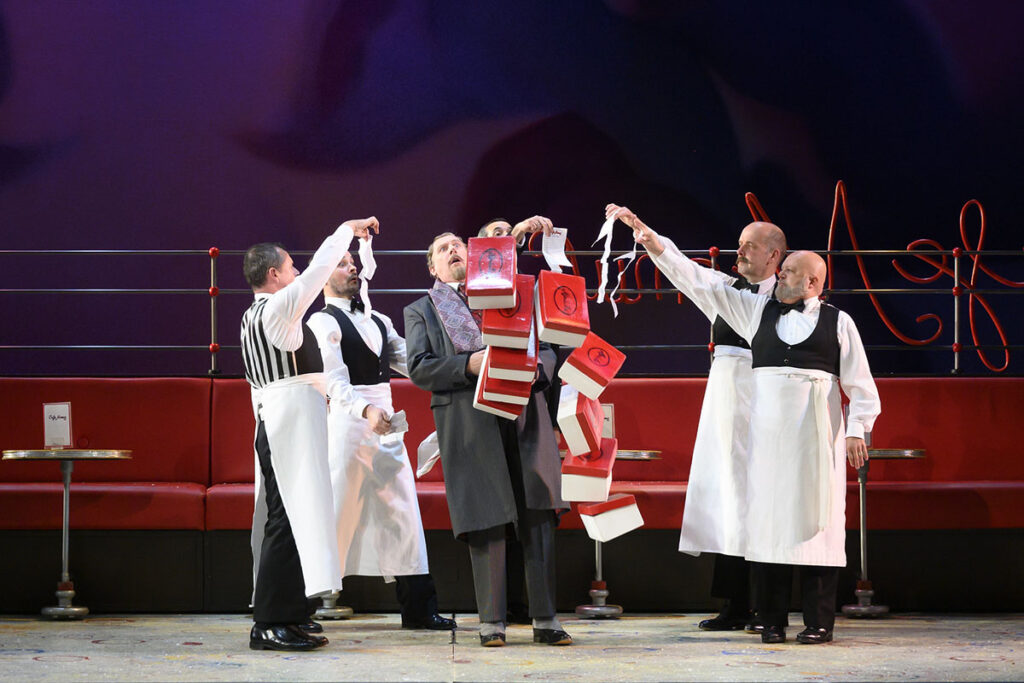
From there, the production lumbers rather than skips. Musetta (Elin Pritchard), a renowned singer and former lover of the tempestuous artist, Marcello (Yuri Yurchuk) is now the consort of a wealthy man, many years her senior. When their paths cross again at the Café Momus, it is clear that, despite their protestations, the singer and the artist are far from done with each other. Or, at least, it ought to be clear. The staging here is leaden and alienating, with too much distance, physical and emotional, between the (allegedly) hot couple. We need Burton and Taylor but are given something nearer pantomime than passion.
Similarly, in act three, one of the dramatic highs, (the juxtaposition of the two young couples in crisis), loses much of its psychological complexity and emotional power when the audience’s focus is drawn to the raw violence of Marcello’s striking of Musetta, and away from the heart-rending inner conflicts of the doomed love between Rodolfo and Mimi.
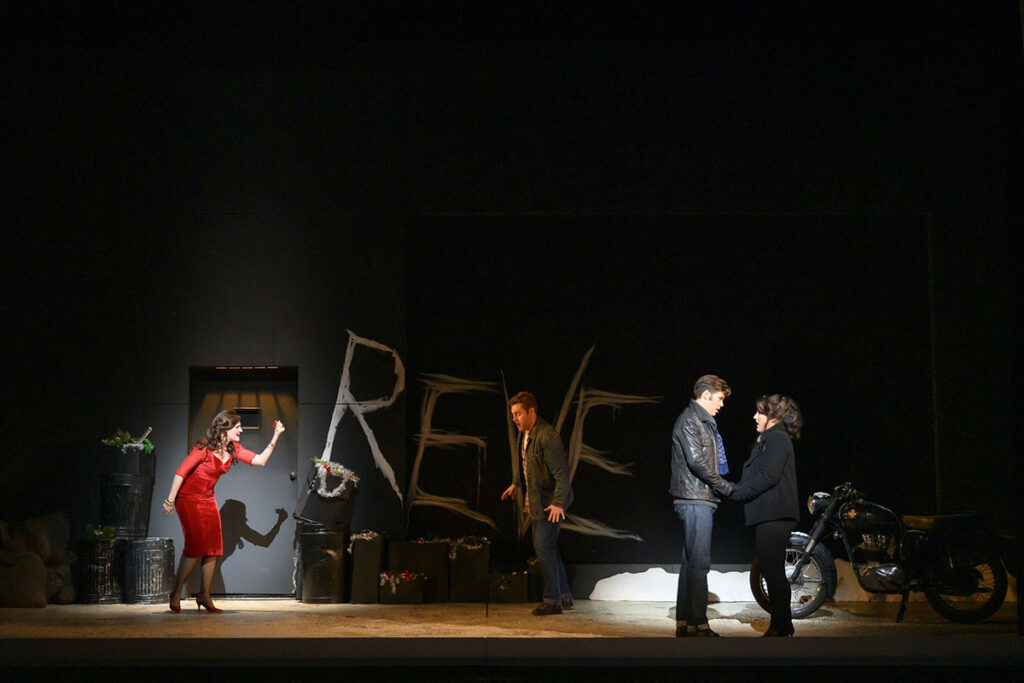
Something is redeemed in act four – largely thanks to the fine acting of Ciaramitaro and Boen – but even here the sense of desperate urgency (friends rushing for medication, medical assistance, a fur muffin for Mimi’s poor hands, etc) never really takes off.
Six years ago, Michael Barker-Caven’s revival of this same Phyllida Lloyd original zinged off the stage. Tonight, not so. Perhaps, 30-odd years on, it’s time for ON to move on and re-imagine this classic from scratch.
Garry Walker conducts the Opera North orchestra with full awareness of the singers’ needs. Each of the four principles is vocally excellent, with Ciaramitaro’s Rodolfo winning my vote for tonight’s laurels. It all sounds lovely, so maybe just lean back, close your eyes and enjoy.
Opera North’s production of La Boheme is at Lowry, Salford as part of the company’s autumn season at Lowry from 12 to 15 November 2025.

